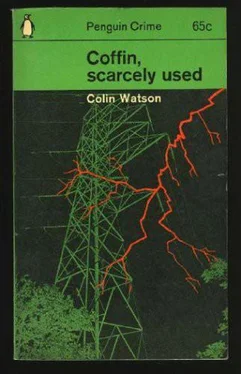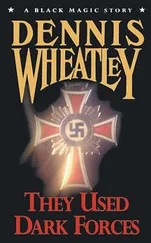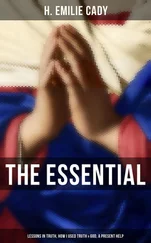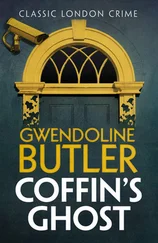Love took out his notes again. “According to Gladys, her uncle had dealings with several people outside the newspaper buisness, and kept George in the dark about them. She doesn’t know who they were and she’s sure her husband was never able to find out. But the pair of them suspected the old man of making money on the side.”
“What sort of dealings? Buying and selling?”
“She hadn’t a clue.”
Purbright considered a while. “Look,” he said, “I think we’ll pull in a little of Gwill’s homework. There’s a cuttings book over at his house that keeps popping into my head for some reason or other. I’d like to see what you make of it.”
“Do you want us to go over there now?”
“Have something to eat first. Oh, and tell me about Mrs Lintz and Nab Bradlaw.”
“She said Gwill knew Bradlaw pretty well...”
“So I’ve heard.”
“...and had said on one occasion something about ‘fixing him if he’d a mind to’. She thought it sounded like a threat and suggested Bradlaw had done the fixing first.”
“Did she say when this threat was made?”
“Several months ago, apparently. At one time every undertaker used to get a free mention in the paper’s report of any funeral he’d handled. Then the system was dropped. Nab was the only one to make a fuss and Lintz asked his uncle what he should do. Gwill told him to let Bradlaw go to hell and dropped that hint that Nab was in no position to be awkward.”
“Hardly an incident pregnant with murderous possibilities.”
“Not on the face of it. But Gwill wasn’t in the habit of saying much, least of all in Gladys’s hearing. The remark stuck in her mind. It’s a very narrow mind,” Love explained.
An hour later, the inspector and the sergeant drove to The Aspens. Mrs Poole, compliant, but looking more than ever like an evicted cemetery-sitter, showed them straight to the room with the desk. Purbright explained to her that they were going to take away some books, but that everything would be reported to Mr Lintz and that she need not worry. She refuted the suggestion that anything Mr Lintz might think could worry her and gave them to understand that they would be welcome to take away Mr Lintz as well.
“No one,” observed Purbright as he accompanied a book-laden Love down the drive to their car, “in this case seems to like anyone else.”
Love grunted. “That woman had a dreadfully haunted look. What do you think is wrong with her?”
“Just frightened.”
“Why?”
Purbright opened the car door. “There’s no knowing at the moment. Probably imaginative and overwrought. On the other hand, she may actually have seen something that scared her. You’ll not get her to talk until she wants to, though. There are women who cling to fear just as some cling to illness. They become quite attached to it.”
Love laid the books on the back seat. “We’d better make a quick call at the Citizen office in case Lintz is still there,” said Purbright. “We can’t very well loot the old man’s house without telling his legatee.”
The street door of the Citizen was locked, but the office within was brightly lit. Purbright peered through the glass. Behind the advertisement counter—an affair of polished maple and redwood strikingly different from the furnishings of the editorial rooms above—a thin, sandy-haired man sat making entries in a ledger. Hearing the policeman’s knock, he raised his head and made helpless gestures meant to convey that the paper’s dealings with its public were suspended for the night. Purbright waved back. At last the thin man grudgingly unlocked the door. Yes, Mr Lintz might be upstairs still, but didn’t anyone know that newspaper offices had works entrances at the bottoms of alleyways for after-hours contingencies?
Purbright, who did know but had no intention of imperilling his limbs by groping in the dark past bicycles, empty crates and spent paper reels, soothed the man and led Love to the editor’s room.
Lintz no longer sat at his desk as though driving an infinitely costly and responsive car. He sat athwart it, surrounded untidily by galley and page proofs.
Love stared at him with innocent admiration. This, he divined, was journalism.
It was, after a fashion, and Lintz was rather tired. Unsmilingly he greeted the two policemen and scrambled down from the sea of council deliberations, smart fines, organs presided at, lucky horseshoes handed, and Dear Sir I hope this catches the eye of...
“My, you are busy,” Purbright superfluously informed him. “You must think it terribly ungracious of us to come worrying you in the middle of all this. Perhaps you’d prefer us to go away until tomorrow?”
“Heavens, no!” said Lintz. “Let’s get it over with now.” He sat down.
“The fact is, there’s something here you might be able to help us with.” Purbright beckoned Love, who handed him one of the books. “It doesn’t make much sense to me.”
The editor turned over a couple of pages and looked up quickly. “This is my uncle’s, isn’t it?”
“It is, yes. You recognize it?”
“I’ve seen it in his office at the house. Why have you taken it?”
Purbright gave him a pained look. “Things have turned out rather unpleasantly, sir; not at all as I would have wished myself. You’ll be sorry to learn that we now think Mr Gwill met his death by violence. It will have to be looked into. Probed, you know.”
“Probe” was a word never employed in the generously explicit headlines of the Citizen . Lintz suspected Purbright of being sardonic. Be careful, he thought. What he said was: “You’re not serious, surely, inspector?”
Purbright gazed gravely down. “Oh, yes, I am, Mr Lintz. Very!”
“This is rather dreadful.” There was silence except for the distant clacking of a solitary linotype machine. Lintz turned over the pages of the book of cuttings. “Why do you think this might have any bearing on what you say has happened?” Caution controlled Lintz’s manner like hair oil.
“It may not. I’m only asking your opinion, sir.”
Lintz put on his unilateral smile. “It so happens that I’ve been rather puzzled about these myself. I came across them some months ago.”
“Didn’t you ask your uncle at the time what they meant?”
“Gracious, no. I knew better than to ask him outright about anything. It’s obvious what they are, of course. They’re small ads from my own paper” (‘my own’ already, thought Purbright), “but why he’d collected them is another matter. By the way, does the list of names and addresses at the back of the book mean anything to you?”
“At the back? I saw no list.”
“Yes, here...” Lintz shut the book and turned over the back coverboard. The page beneath was blank. “My mistake. He must have torn it out. That’s where it was.”
“You can’t remember any of the names, I suppose?”
“No, I only glanced at them once when I was waiting for the old man. I vaguely remember noticing that several of the addresses were down in the Sharms and Haven area.”
“And the advertisements themselves: is there anything peculiar about them?”
Lintz turned back to the clippings. “They’re not exactly common or garden offers. Antiques aren’t in my line, though.”
“Were they in Mr Gwill’s?”
“Not to my knowledge.”
“But they might have been?”
“Look,” said Lintz. “I think we’d better have House up here. He handles the advertising. Perhaps he knows something about these.”
He left the room and the others heard him call down the staircase. A few moments later he returned with the thin man from the front office.
House scrutinized the cuttings.
Читать дальше












